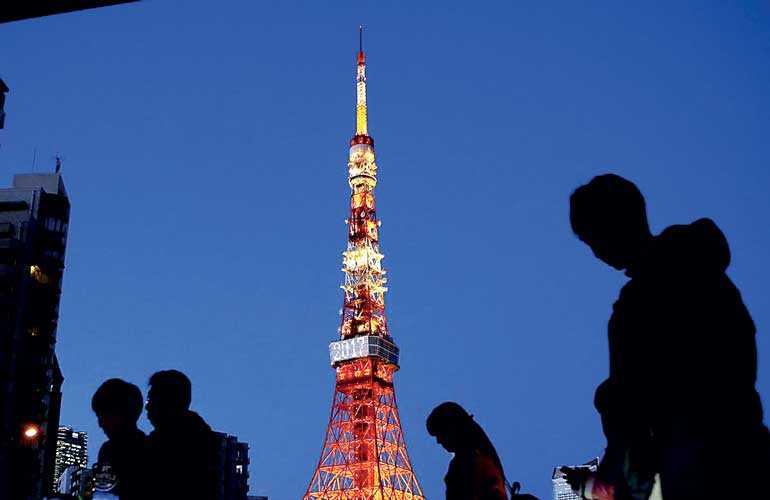Friday Feb 20, 2026
Friday Feb 20, 2026
Tuesday, 9 April 2019 00:00 - - {{hitsCtrl.values.hits}}

TOKYO (Reuters): Japan appears to have dodged a thanks to resilient business spending but tanking factory and export sectors and a lack of policy options leave it particularly vulnerable if a projected recovery in the global economy fails to materialise.
If domestic growth crumbles, Prime Minister Shinzo Abe could postpone yet again a scheduled sales tax hike in October or offer a modest increase in fiscal spending, some analysts say.
The Bank of Japan, too, may be forced to ramp up monetary support, though many analysts say the central bank is left with few effective tools to prop up growth.
While the chances of such actions are small, they cannot be ruled out given Japan’s exposure to economic swings in big export destinations like China, analysts say.
“Chances are fifty-fifty that Abe may delay the sales tax hike again,” said Takeshi Minami, chief economist at Norinchukin Research Institute, who see a 70 percent chance Japan may slide into recession.
“If the sales tax is delayed, the BOJ would come under pressure for further easing.”More extreme steps like using government spending as a primary policy tool to boost employment and spur inflation – an idea dubbed “Modern Monetary Theory” (MMT) backed by some US academics and politicians – are off the table for now, government officials say.
“There is no sense that someone is going to latch onto this and push for a huge increase in fiscal spending,” a government official with direct knowledge on economic policy-making said, when asked by Reuters about MMT.
“However, the government’s position is that fiscal and monetary policy need to work together,” the official said, adding that the priority for government officials is to deal with any downside shocks with additional fiscal spending.
Factory output and exports slumped in January due to a bruising US-China trade war, forcing the government to cut its economic assessment in March for the first time in three years.
But the government held off from declaring Japan in a recession. Central bank policymakers also saw relief in the BOJ’s “tankan” survey last week that showed companies were maintaining their robust capital expenditure plans.
Still, government and central bank policymakers worry that the global slowdown, if it persists, may eventually prompt firms to delay investment, say sources familiar with their thinking.
“External headwinds aren’t hurting capital expenditure yet, so Japan can still expect a second-half rebound in growth,” said one of the sources. “But uncertainty is high,” the source said, adding that much will depend on how quickly global growth – notably China’s economy – will pick up.
Abe has said he will go ahead with a twice-delayed increase in the sales tax rate to 10 percent from 8 percent in October unless a shock to the scale of the collapse of Lehman Brothers in 2008 hits the global economy.
The government has already earmarked roughly 2 trillion yen ($ 17.95 billion) in spending to mitigate the pain, raising the threshold to postpone the tax hike again. But some analysts say another delay could not be ruled out as Abe faces an upper house election in the summer.
The BOJ could be asked upon to ramp up stimulus, though it is running out of ammunition and facing criticism that prolonged easing is inflicting too much pain on financial institutions.